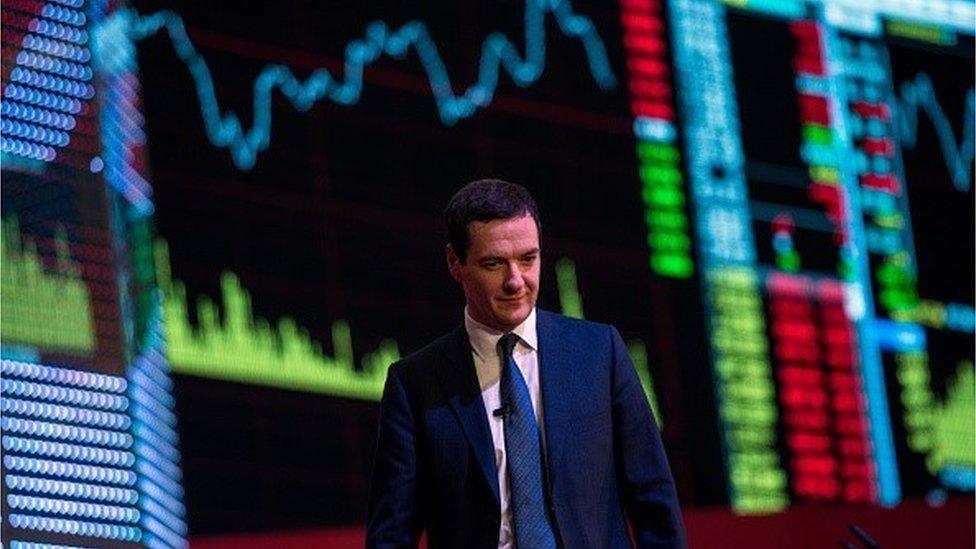'China must be our number two export market'
- Published
- comments

Some see in George Osborne a Chancellor of the Exchequer practising to be prime minister, in the way he has tried on his tour of China to set the agenda for the UK's future relationship with the world's second biggest economy.
But this afternoon, for a nano-second, I wondered whether he didn't fancy a permanent move to Beijing and a tilt at becoming Supreme Leader - because in an interview with me he set an economic target for the UK which felt quite People's Republic and five-year-plan in flavour.
He told me that it was his ambition that China should become the UK's second biggest export market within 10 years - compared with sixth or seventh now, and ninth in 2010.
Hmmm. British politicians who set themselves up to boost our export performance to particular countries have historically set themselves up to fail.
Maybe this time it will be different.
And, in fairness to him, when I said that I didn't think there were levers available to him at the Treasury to forcibly redirect British businesses more towards the products and services the Chinese actually want or need, or to compel the Chinese to remove barriers to trade, he didn't really try to talk me round.
So I fear this is more the pep talk of the manager of a struggling football team at the start of the season.
Playing to win
That said, governments can help a bit to boost trade by opening doors and providing finance, and few would disagree that the UK should and must sell more to the Chinese - because the latest stats show that our sales to China were considerably less than a third of those to America and were more-or-less the same as to Belgium and Luxembourg.
And in case you wondered, the population of Shanghai alone - which is where George Osborne set this trade goal - is well over twice that of Belgium and Luxembourg combined.
So if we just did better in Shanghai, that would make a lot of British businesses a lot more prosperous.
Just maybe if we were slightly better at speaking their language we would be more adept at selling to them. So he is providing £10m to train up teachers able to turn 5000 young British people into mandarin speakers.
One thing which is clear is that the Chancellor is playing to win, and isn't letting conscience get in the way of extracting cash from the great wallet of China.
This morning he announced an important manifestation of a hoped-for trade and investment convergence between the UK and China: plans to establish a revolutionary electronic connection between the Shanghai and London stock exchanges, which would allow Chinese shares to be traded in London and vice versa.
Commerce comes first
His marketing blarney is that the Shanghai market will be less vulnerable to the kind of dramatic falls it has suffered in recent weeks if it is more closely integrated with global markets - although it is not at all clear that these linkages transmit liquidity and calm, or fear, loathing and increased volatility.
Now George Osborne's sinophilia does not extend to China's one-party state or apparent contempt for civil liberties we regard as basic - as he made clear in a speech this afternoon at the Shanghai Stock Exchange.
But commerce comes first - or rather he appears to believe that getting closer to the Chinese in a commercial sense will osmotically lead China's leadership to absorb our values.
Not everyone would concur. And it is certainly striking that he is to be the first western minister to visit Urumqi, where the indigenous Uighur population feel economic and culturally discriminated against for their Islamic faith.
As for China's significant economic slowdown, which George Osborne acknowledges is real, his hope is that if China succeeds in re-tilting its economy more towards consumer spending - and away from excessive debt-financed investment - Chinese people and businesses may feel more inclined to buy British.